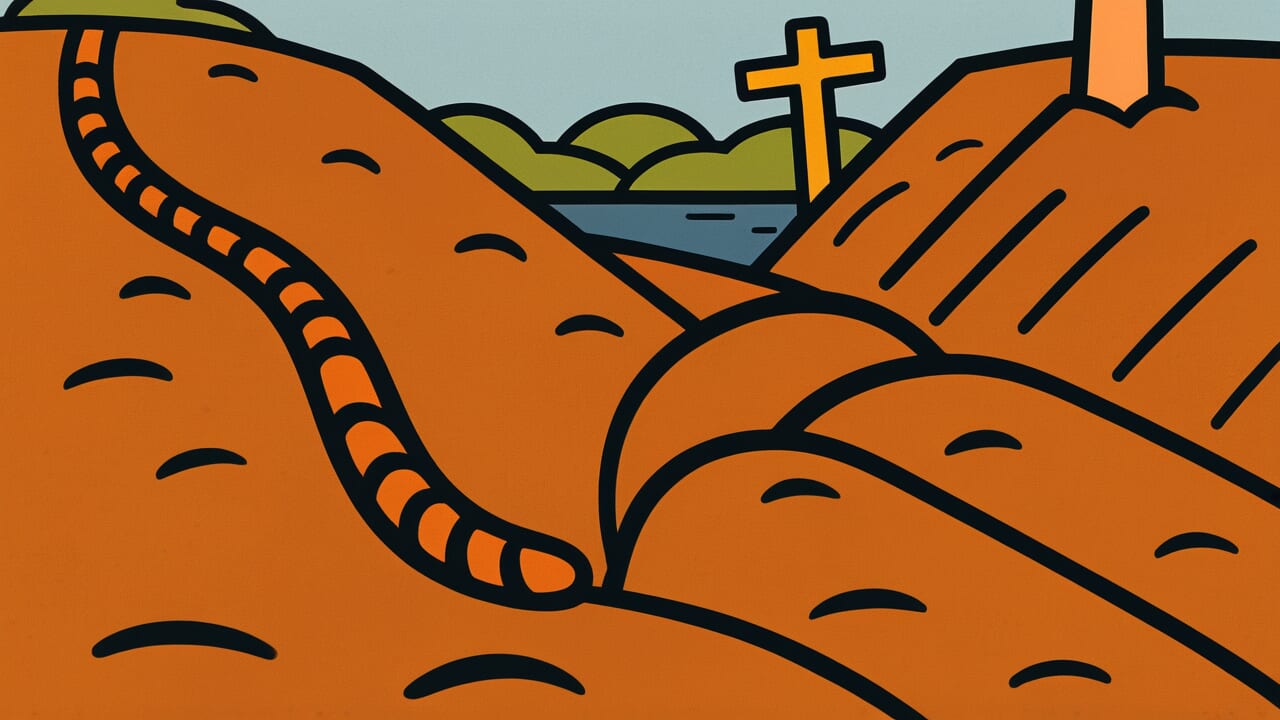How to Read “An earthworm can bore through a dike and flood an entire village”
sekiin tei wo ugateba yoku ichiyū wo tadayowasu
Meaning of “An earthworm can bore through a dike and flood an entire village”
This proverb teaches that even small problems or minor flaws can eventually lead to major disasters if left unattended. It warns against dismissing small troubles with the attitude “this much should be fine.”
This saying applies to many situations: organizational management, safety measures, human relationships, and health care. For example, overlooking minor misconduct at a company, ignoring slight machine malfunctions, or dismissing small misunderstandings in relationships.
People use this proverb to emphasize the importance of early action. Problems are easy to fix when they’re small, but become impossible to handle once they grow.
The dramatic image of a collapsing dike conveys this truth powerfully. Even in modern society, this teaching remains as relevant as ever.
Origin and Etymology
This proverb is believed to originate from ancient Chinese classics. “Shakuin” refers to an earthworm about one shaku (30 cm) long. “Tsutsumi” means dike, “ugatsu” means to bore a hole, and “ichiyū” refers to a village or town.
In other words, a small earthworm bores a hole in a dike, which eventually floods the entire village.
Water management has been a critical national issue in China since ancient times. Floods from great rivers like the Yellow River and Yangtze River claimed countless lives and threatened the survival of nations.
Therefore, dike maintenance was taken extremely seriously. No matter how magnificent a dike, a single small hole could let water seep in. That hole would gradually expand until the entire dike collapsed.
People witnessed this terrifying reality repeatedly throughout history.
An earthworm, an insignificant tiny creature, possesses the power to collapse a massive dike and destroy an entire village. This striking contrast makes the proverb especially memorable.
Japan has a similar expression, “the hole of an ant,” but “An earthworm can bore through a dike and flood an entire village” conveys a more concrete and visual sense of terror.
Usage Examples
- We kept postponing a small system bug, and just like “an earthworm can bore through a dike and flood an entire village,” the entire service eventually crashed
- I should have been honest about that first small lie. “An earthworm can bore through a dike and flood an entire village” is really true
Universal Wisdom
Humans have a tendency to underestimate small problems right in front of them. We react sensitively to immediate visible dangers, but our ability to imagine future disasters is weak.
A small hole just looks like a small hole. Even when we intellectually understand the causal relationship leading to massive collapse, truly feeling it in our hearts is difficult.
This proverb has been passed down through generations because it sharply exposes this human weakness. We tell ourselves “it’s still okay” or “things will work out somehow,” and postpone dealing with troublesome issues.
Facing small problems sometimes requires more courage than confronting big ones. Why? Because others might laugh at you for worrying about “such trivial things.”
However, our ancestors knew better. True wisdom is the ability to see great danger within small things. The person who seriously plugs the hole made by a single earthworm is the hero who saves the entire village.
Unglamorous and unnoticed prevention is the most valuable action. This paradoxical truth is what this proverb continues to teach us.
When AI Hears This
The phenomenon of a small hole in a dike flooding an entire village is a classic example of what complexity science calls a “critical point.” A critical point is the boundary where a system suddenly changes to a different state.
Just as water suddenly boils when temperature rises from 99 to 100 degrees, dramatic changes occur once a certain point is crossed.
Research shows that dike destruction follows a “power law.” When the hole size doubles, water outflow doesn’t just double—it quadruples or increases eightfold. This follows the same mathematical pattern as avalanches and earthquakes.
Even a 1-centimeter hole initially, the flowing water erodes surrounding soil, and the eroded area further accelerates the water flow. This positive feedback loop triggers exponential collapse.
Also noteworthy is the “redundancy trap.” Dikes are designed so the whole structure survives even if parts are damaged. But in reality, a small hole becomes a “single point of failure” that triggers total collapse.
Modern internet systems and power grids share this same vulnerability. In 2021, a single cloud service outage brought down thousands of websites worldwide.
This proverb teaches the “weakest link theory”—a system’s strength is determined by its weakest part. Even if 99.9 percent is perfect, that 0.1 percent flaw can become the critical point.
Lessons for Today
This proverb teaches modern people the importance of “sensitivity to not miss small signs.” Our daily lives overflow with various small warnings.
Physical discomfort, slight changes in relationships, small mistakes at work. These are messages trying to tell you something.
Modern society emphasizes efficiency so much that there’s a tendency to “ignore small things and move forward.” But isn’t true efficiency dealing with problems while they’re still small?
It takes far less effort than scrambling to respond after they’ve grown large.
If there’s something small bothering you right now, it might be a sign you shouldn’t ignore. Question the mindset that says “this much is nothing.”
That small awareness and action could protect you and those around you from major future difficulties. Have the courage to face small problems. That is true wisdom.



Comments